ENKENBACH-ALSENBORN, Germany - An encouraging, great-feeling moment is how Lt. Col. Trevor Shaw described watching his daughters from the finish line at the 50-meter wheelchair-assisted race May 6 during the Special Olympics Spring Games at the German Police Academy here.
First-time competitor at these games, Haley Shaw, 12, a sixth grader at the Robinson Barracks Elementary/Middle School in Stuttgart, drove her wheelchair as her little sister, Erica, 9, a RBE/MS third grader, ran with her cheering and waving a plastic hand-clapper during the whole race.
As the girls crossed the finish line, Haley had the biggest smile on her face and was bursting with laughter. Erica, too, was overwhelmed with joy as she put her arms up in the air, and shouted, "You did it!" She then ran over to the event coordinators to get her big sister's ribbon.
"Just a great feeling - it's encouraging to see my disabled child - physically - have some kind of athletic outlet and to see my other child be so supportive to her sibling," said Shaw, with the Headquarters, U.S. European Command in Stuttgart. "(Special Olympics) is a great event - well run and organized."
Special Olympics is an international program of athletic competition for children and adults with intellectual disabilities. It's been held in the Kaiserslautern military community in early May for 26 years, courtesy of the U.S. Army Garrison Kaiserslautern. For the past 10 years, the event has been held and co-hosted by the German Police Academy.
More than 800 athletes competed in this year's games, said Jason Ille, the garrison's Special Olympics coordinator. Athletes, ages 8 to 70, competed in eight games such as softball, volleyball and Bocce Ball, and those 5 years and older enjoyed 12 non-competitive events such as bean-bag toss, obstacle course and basketball.
"These games are very important for their personality and self-esteem that's with them in their daily lives," said Monika Kabus, a teacher with the Hans-Zullinger-Schule in GrAfA1/4nstadt, who was at the games for the first time bringing 40 students, also for the first time. She had just finished giving a big congratulations hug to one of her students, Anja Wrablewski, 18, for earning the gold medal in Bocce Ball.
More than 1,500 - a hundred more than previous years - German and American Army, Air Force and Navy military and civilian volunteers from the KMC and surrounding areas participated, said Larry Zani, who has been an event coordinator for the Special Olympics here for the past 18 years.
Showing up at these games at 6 a.m. for the past three years, Air Force Master Sgt. Johnny Rapier, from the 86th Airlift Wing Construction and Training Squadron, helps out by registering all the athletes and volunteers. It takes about three hours, he said, and after that he helps out wherever he can.
"Even if it's to say 'hi,' cheer on athletes and meet people," he said. "It puts a smile on my face - I just can't help it. It's such a great event."
Volunteers were from Stuttgart, Vilseck, Bitburg, Spangdahlem, Heidelberg, Mannheim, Hohenfels and GrafenwAfAPhr. Athletes represented 41 schools and institutions throughout Germany, including 16 Department of Defense Dependents Schools-Europe.
Schools participating for the first time were Hohenfels Middle/High School, and the brand-new Netzaberg Elementary and Middle Schools, and it's been many years since the Robinson Barracks Elementary/Middle School has taken part in the games here, Zani said.
Ribbons were given at the competitive events for just trying, with some athletes garnering first, second or third-place honors. By the games' end, numerous multicolored ribbons adorned most athletes.
Adding to the color were medals of gold, silver and bronze awarded in the competitive games in gender-specific categories such as assisted, unassisted and wheelchair bound.
Haley won a gold medal, and her twin brother, Connor, who was also participating in these games for the first time, won three silver medals.
"They were trying to decide which was better - the one gold or the three silver medals," said Shaw, two days after Special Olympics were held. "(Haley) was really excited - she looked forward to these games, and she has slept with her gold medal for the last two nights."
For showing spirit and love of the games, Sara Jung, an athlete from the Lebenshilfe in ZweibrAfA1/4cken, was awarded the Sarah Bican Inspirational Athlete Trophy. This award is named after Sarah Bican, who as a DoDDS teacher brought Special Olympics to Kaiserslautern in 1974.
Lt. Col. Mechelle Hale, the garrison's commander, awarded the Commander's Trophy to Bootz Arno, 51, from the Lebenshilfe in Kusel.
"I am surprised and very happy. I'm going to put this trophy in a special place," he said.
(Editor's Note: Christine June writes for the USAG Baden-WAfA1/4rttemberg newspaper, the Herald Post.)
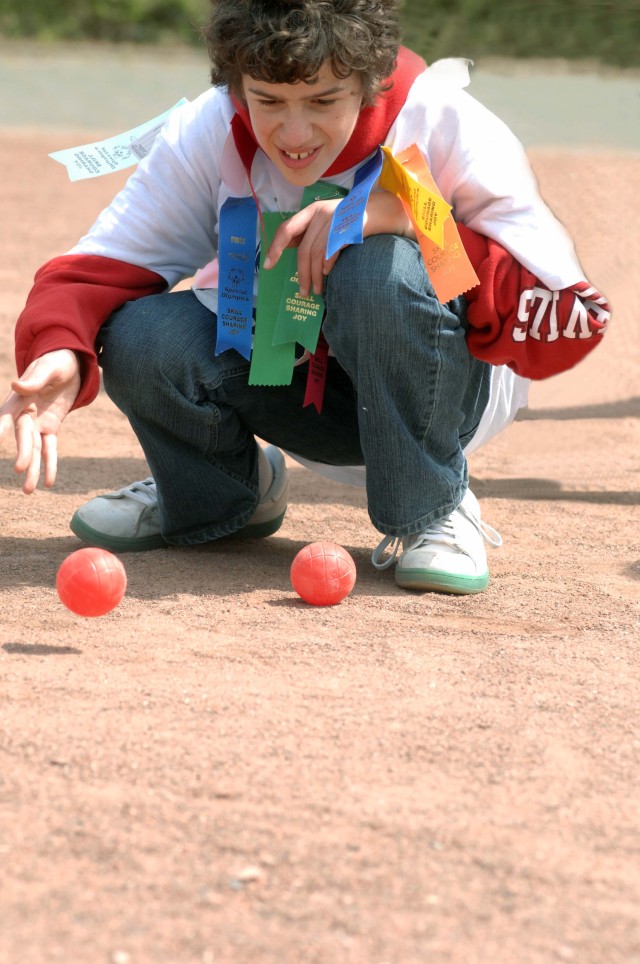
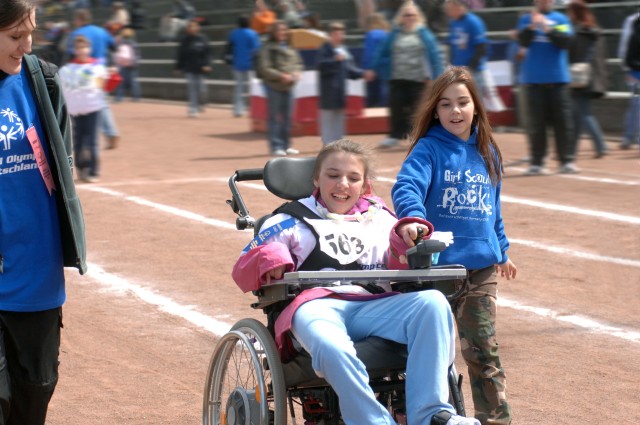
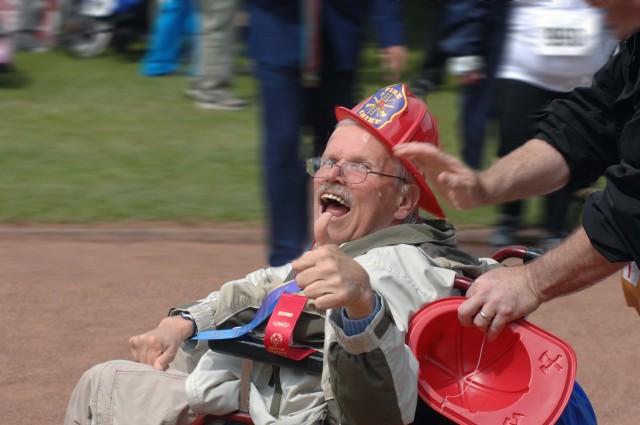
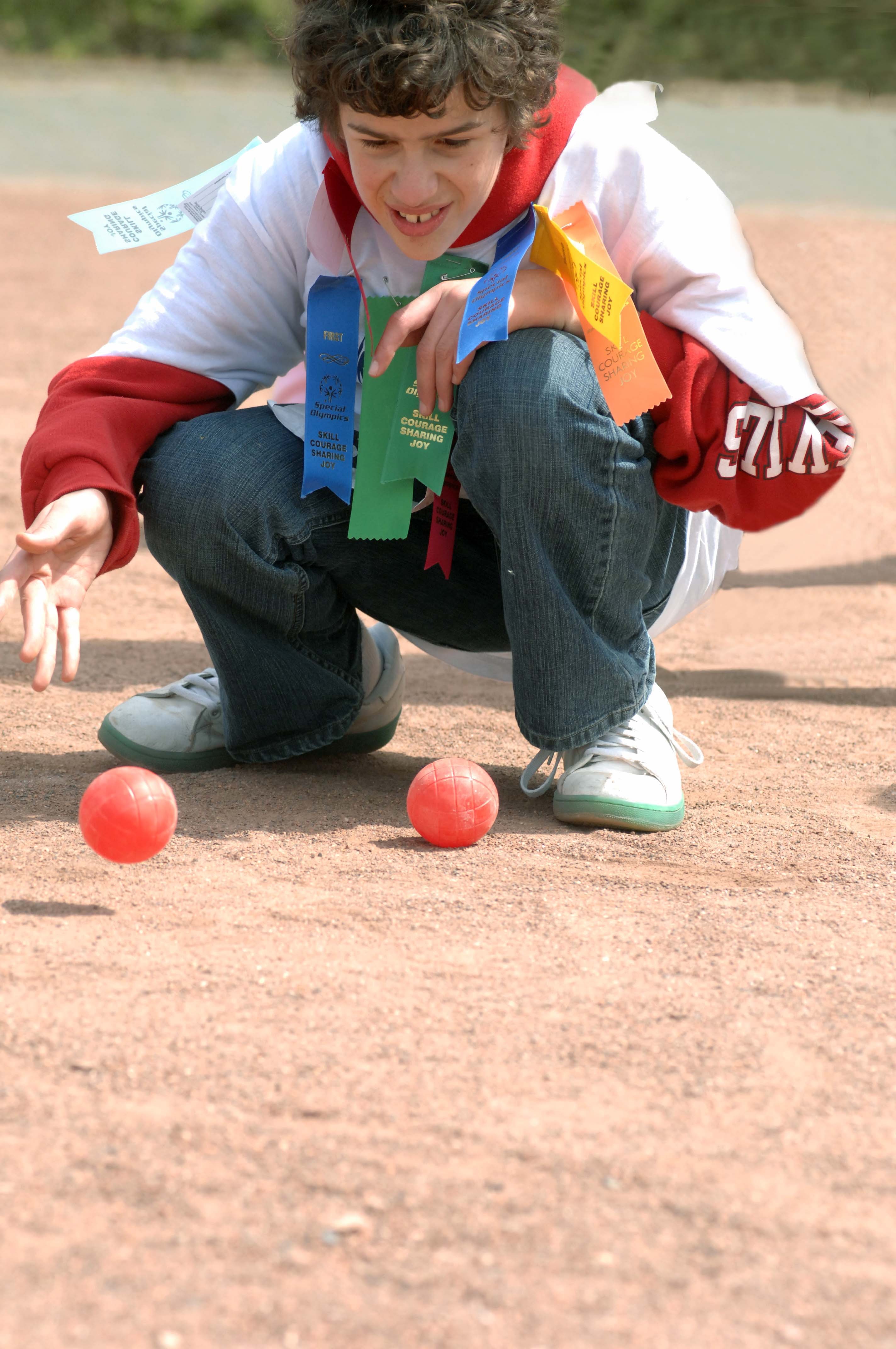
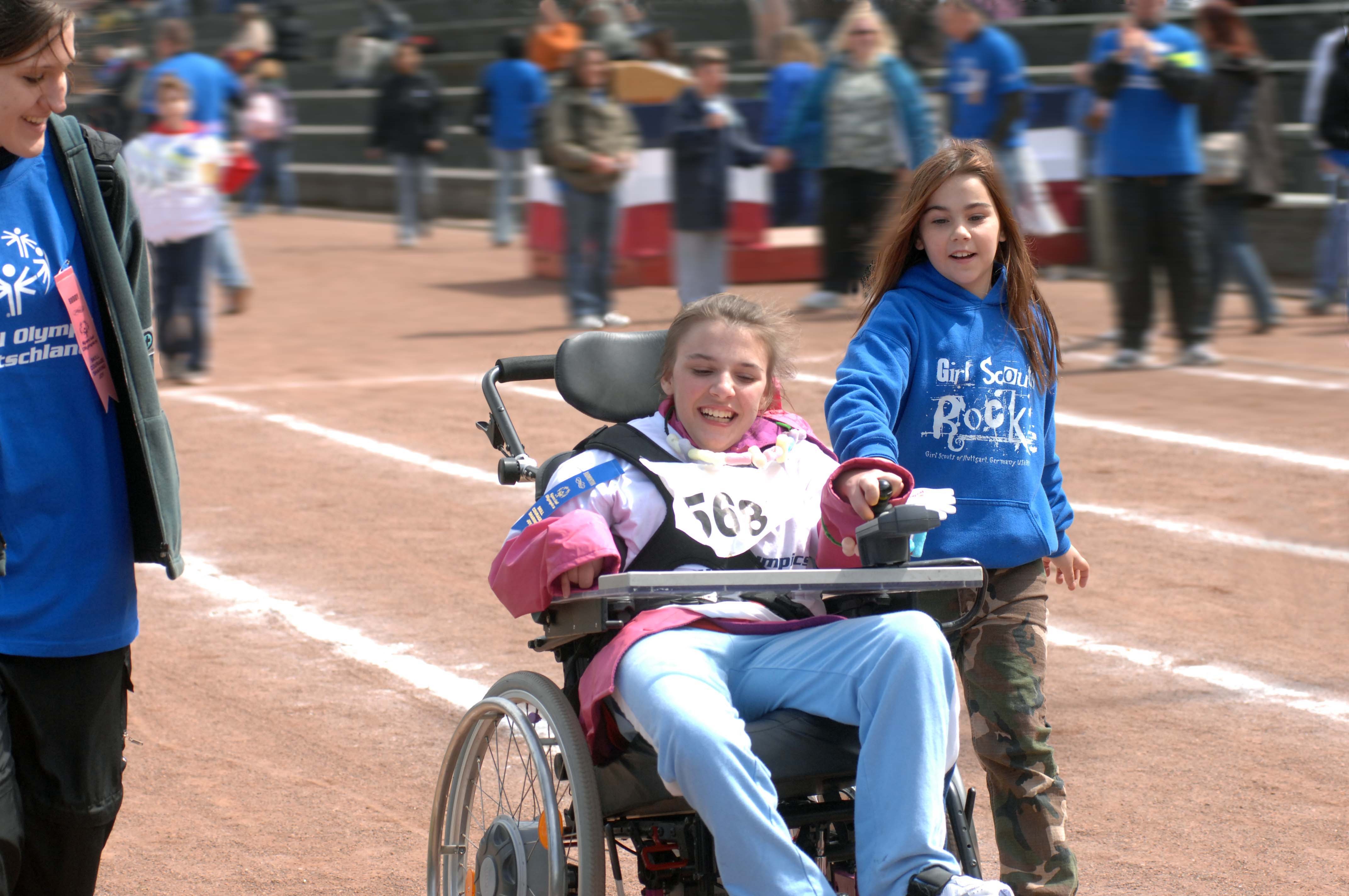
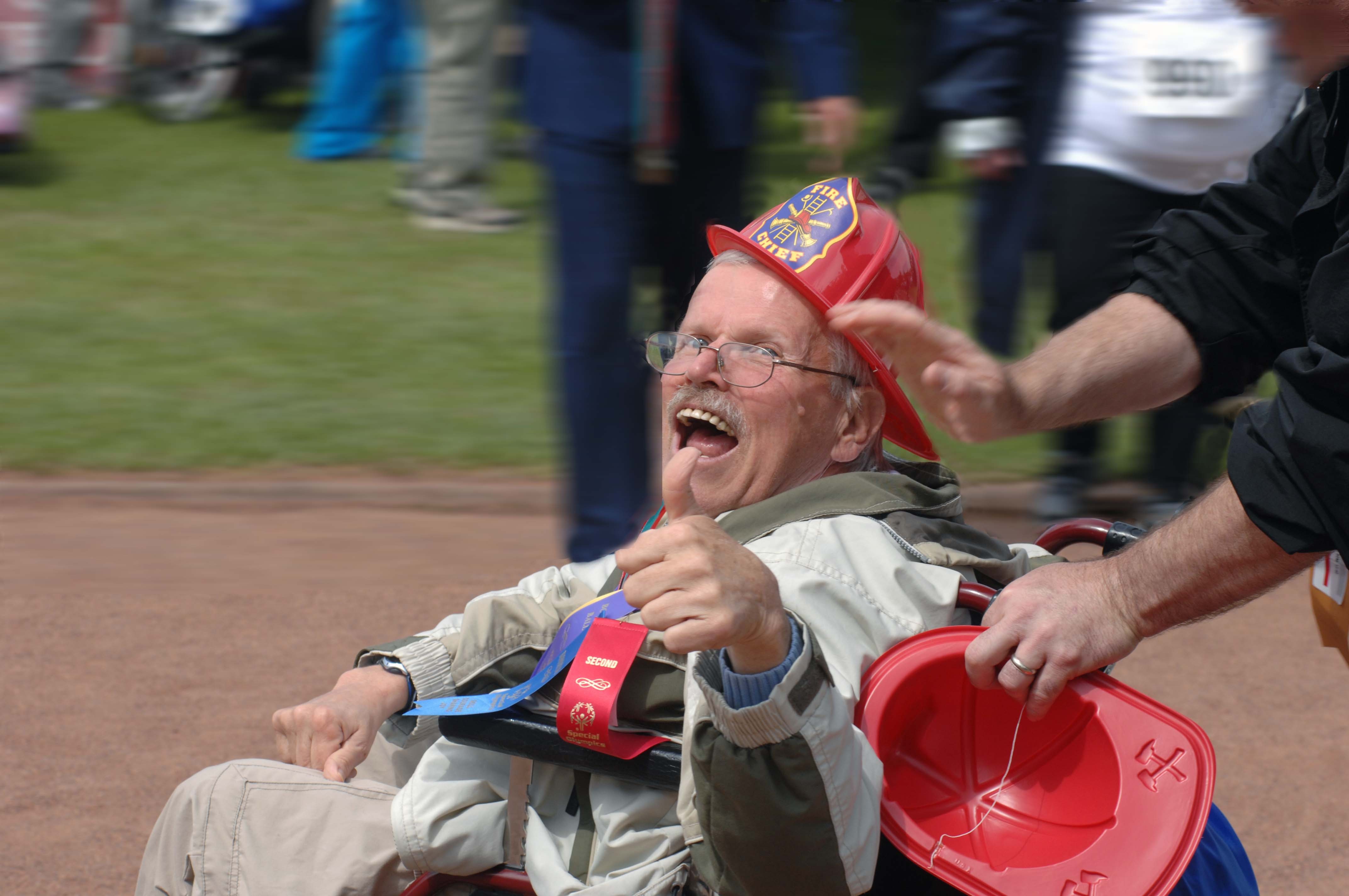
Social Sharing